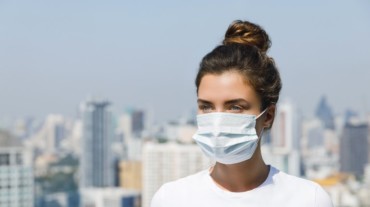
There is still no relief from covid-19. In fact, the updates that we are getting from across the globe are making the case of this pandemic even worse. From immunity to our mental health, SARS-CoV-2 has shown its impact on each and every thing–but that’s not the worst part. The worst is yet to come because according to the latest covid-19 updates, this virus has a prolonged impact even if you had mild symptoms.
That’s why we want you to know all the latest health updates about covid-19. here are some recent ones you must know:
1. SARS-CoV-2 induces prolonged immune response
People who have been found to be covid-19 positive might see an immune response against the virus for months post recovery. Early reports suggested that in mildly-ill patients, antibodies decrease and immunity wanes soon after recovery.
But study co-author Lauren Rodda of the University of the Washington School of Medicine told Reuters that if these patients do become reinfected, they are less likely to become severely ill or be contagious.
The findings show immune responses last three months, if not longer, Rodda added, they support U.S. Centers for Disease Control and Prevention’s advice that patients need not be retested for covid-19 within the first three months after an infection.

2. Covid-19 survivors are at risk of mental health issues
A study of more than 62,000 covid-19 survivors has found significant risks for mental health issues. Researchers found that one in 16 covid-19 patients who never had a mental illness will be diagnosed with one within three months after infection. Most common are anxiety disorders, but depression, insomnia, and rarely, dementia can also occur.
The study, published on Sunday on the medRxiv site, found higher-than-average covid-19 rates in people with a previous psychiatric diagnosis. Study leader Maxime Taquet of the University of Oxford advises, “If you experience anxiety, low mood, insomnia or memory loss after covid-19, you should see a medical professional as there might be ways to improve these symptoms.”
3. The viral load of covid-19 is not linked with smell or taste recovery
These findings were reported in the journal Laryngoscope and claims that the viral load of covid-19 was not linked to the severity of olfactory and gustatory symptoms in covid-19 patients, nor with how long it takes for the sense of smell or taste to return to normal.
The study is based on data from 39 patients in Hong Kong who developed problems smelling or tasting – or both. On average, it took 10 days for these senses to return. Four to six weeks after becoming ill, 72% had completely recovered the ability to smell and 83% were able to taste again. But there was no statistically significant link between viral load and severity of these symptoms or the recovery time.
4. Antibody-rich convalescent plasma may be the best line of treatment
We have all been hearing a lot about the benefits of plasma when it comes to covid-19. Treating seriously-ill covid-19 patients with antibody-rich blood plasma from people who have recovered from the disease can lower the risk of death, and new data from a nationwide U.S. study is now helping fine-tune the use of this so-called convalescent plasma.
Select Topics of your interest and let us customize your feed.
PERSONALISE NOWAlso, watch:
According to research, mortality rates were lower when plasma was given within three days of diagnosis, rather than later, the researchers found. And the more antibodies in the plasma, the lower the recipients’ risk of death. In a report posted ahead of peer review on medRxiv, the research team concluded that while the study was not a gold-standard randomized trial, the findings added to evidence that “the quality and manner in which convalescent plasma is administered to patients hospitalized with covid-19 may reduce mortality.”
So, the best thing you can do is to stay away from this virus by taking all the precautions because if it will hit you even a bit then it will have long-term implications.
(With inputs from Reuters)